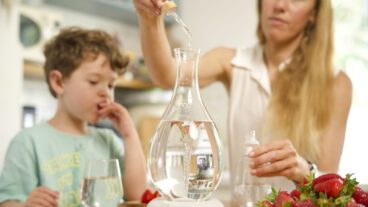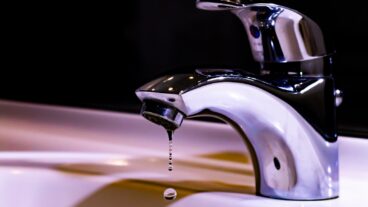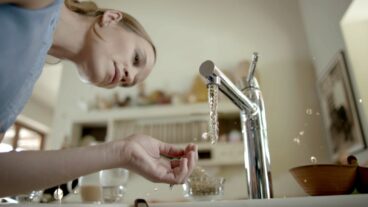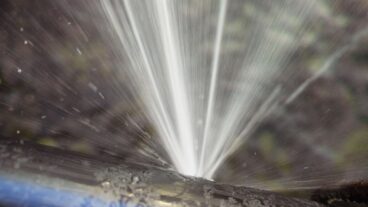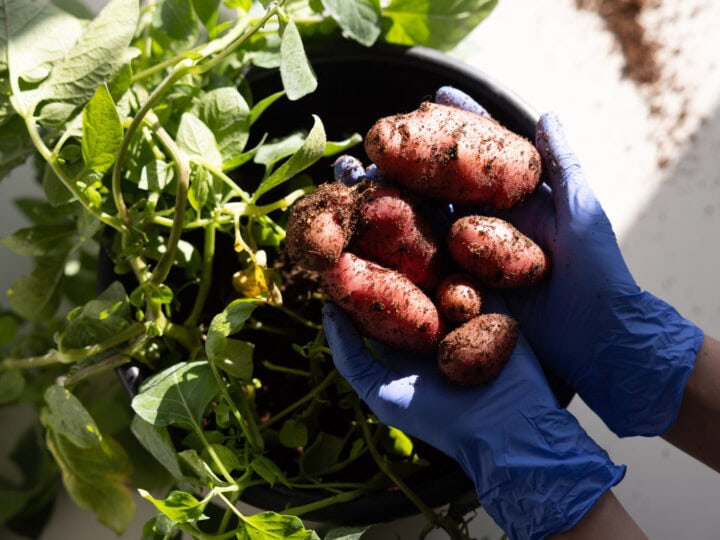Nitrates in drinking water pose serious health problems, but a new low-tech solution from Israel is coming to the rescue.
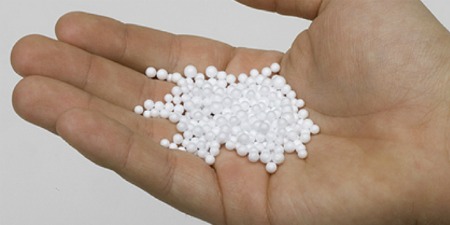
Rainstorms wash away what nature can’t clean up, but this often comes at a price. Runoff from agricultural fertilizers, animal waste and human sewage are poisoning wells and aquifers with nitrates. These compounds cause harmful algae blooms and pose health risks for pregnant women and formula-fed newborns.
Water companies currently deal with the problem in a very rudimentary way because getting the nitrates out by reverse osmosis is too expensive. They simply dilute the nitrate-laden water, explain professors Amos Nussinovitch and Jaap van Rijn from the Hebrew University of Jerusalem.
The two scientists have developed a novel low-tech solution to take nitrates out of water in a cost-effective, environmentally friendly and non-toxic way.
Nussinovitch, an expert in biological carriers, and van Rijn, a specialist in bacteria, paired up to develop a bio-filter composed of tiny Styrofoam-like white beads that carry nitrate-eating bacteria. When added to a water well, aquifer or aquarium, the bio-filter does its job effectively and cheaply.
Showcased at WATEC
Now in the prototype stage, the product is being tested to see how well it can work in larger bodies of water. It is being developed commercially by the technology transfer arm of Hebrew University, Yissum, and was launched at the WATEC water conference in Tel Aviv in November.
Water infrastructure companies everywhere are paying attention.
Nitrates are an increasing problem for both the developed and developing world. As our populations grow, so does the need for fertilizers, sewage reservoirs and animals for food.
Nitrate is odorless, tasteless and colorless, so only regular testing of wells and aquifers can detect its presence. When they drink nitrate-laden water in formula, newborns’ digestive systems respond by producing high levels of bacteria, leading to the potentially fatal blue baby syndrome as blood oxygen decreases.
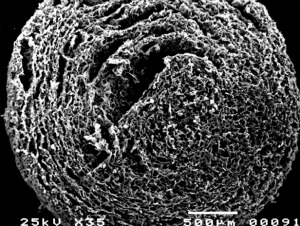
Van Rijn, the same man behind an aquaculture technology called Grow Fish Anywhere for fish farming in urban environments, says that this new technology is meant for drinking water and aquarium water, which need to be extremely clean.
A wellspring of opportunities
The beads work so that “water goes through a matrix and comes out clean,” he tells ISRAEL21c. “For aquaria there are almost no solutions – or the ones that exist are very unreliable. For drinking water there is reverse osmosis, but this is very expensive.”
Nitrate loading is a pressing problem in coastal areas of Israel, where van Rijn says about 50 percent of the wells are polluted due to nitrates, and in places with similar climates, such as California and Colorado.
Yissum is now looking for commercial partners to develop a pilot plant to provide onsite water treatment. It could be hooked up to factories, agriculture processing plants or paper mills, for example.
Nussinovitch says that he has been working with polymers and biodegradable materials all his life. His contribution to the project was developing the biopolymers into an appropriate carrying mechanism to house the bacteria so that beads could entrap the bacteria for the right amount of time before dissolving and releasing nitrogen gas.
The beads in dry form have a long shelf life, and leave no trace behind once dissolved. They work well in both fresh and saltwater conditions.






